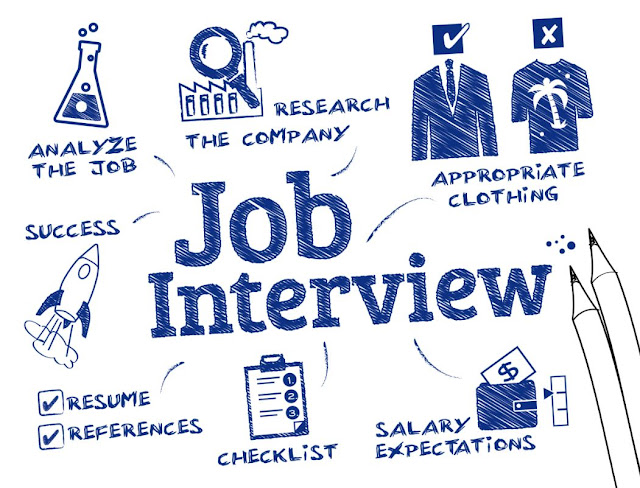Employee Recruitment Interviews
The Art of Selecting Top Talent
Employee
recruitment interviews are the keystone of any hiring process. They serve as a
crucial opportunity for employers to assess candidates beyond their resumes and
qualifications. In this guide, we’ll explore the details of conducting
effective recruitment interviews and how they play a key role in shaping a
company’s workforce.
Understanding the Significance
Skill Evaluation - Interviews provide a platform to gauge a candidate’s skills, experiences, and qualifications as listed in their application.
2. Assessment of Fit - They help in assessing a candidate’s compatibility with the company culture, values, and ethos.
Behavioral Insights - Interviews reveal behavioral patterns and personality traits critical for a role's success.
Types
of Interviews
4. Structured Interviews - Employ a predetermined set of questions
for consistency across candidates.
5. Unstructured Interviews - Allow flexibility, fostering a more
natural conversation to gauge personality and adaptability.
6. Behavioral Interviews: Focus on past experiences to predict
future behaviors and performance.
Preparing for Success
Defining Criteria - Clearly outline the
competencies and attributes essential for the role.
Question Development - Create questions that
align with the job requirements, focusing on behavioral and situational aspects.
Evaluation Framework - Establish a
standardized scoring system to objectively assess each candidate.
Defining Criteria - Clearly outline the
competencies and attributes essential for the role.
Question Development - Create questions that
align with the job requirements, focusing on behavioral and situational aspects.
Evaluation Framework - Establish a
standardized scoring system to objectively assess each candidate.
Conducting a
Successful Interview
Create a Welcoming Environment and a comfortable atmosphere to
encourage open communication and relax candidate’s nerves. Active Listening,
pay attention to verbal and non-verbal cues to understand candidates better.
Encourage candidates to ask questions. It shows interest and
enthusiasm for the role is most important to monitor the candidate's
communication skills.
Create a Welcoming Environment and a comfortable atmosphere to
encourage open communication and relax candidate’s nerves. Active Listening,
pay attention to verbal and non-verbal cues to understand candidates better.
Encourage candidates to ask questions. It shows interest and
enthusiasm for the role is most important to monitor the candidate's
communication skills.
Post-Interview Phase
Timely Feedback - Offer constructive
feedback to candidates regardless of the hiring decision.
Debriefing Sessions - Share insights and
perspectives among interviewers to gain a holistic view.
Informed Decision Making
- Use
evaluation metrics to make an informed hiring decision aligned with
organizational needs.
Recruitment interviews are not just
about assessing qualifications; they are about finding the right fit. By
approaching interviews with preparation, structure, and a focus on both
technical and soft skills, organizations can enhance their hiring process and
build teams that thrive.
Timely Feedback - Offer constructive
feedback to candidates regardless of the hiring decision.
Debriefing Sessions - Share insights and
perspectives among interviewers to gain a holistic view.
Informed Decision Making
- Use
evaluation metrics to make an informed hiring decision aligned with
organizational needs.
Recruitment interviews are not just
about assessing qualifications; they are about finding the right fit. By
approaching interviews with preparation, structure, and a focus on both
technical and soft skills, organizations can enhance their hiring process and
build teams that thrive.
References
1. Smith,
J. (2019). The Art of Hiring. Publisher.
2.
Johnson,
A. (2020). 'Behavioral Interviews: A Predictive Tool', Journal of Human
Resources, 15(2), 123-135.
3.
Brown, L. (2018). Structured Interviews: The Key to Effective
Hiring, Publisher.
1. Smith,
J. (2019). The Art of Hiring. Publisher.
2.
Johnson,
A. (2020). 'Behavioral Interviews: A Predictive Tool', Journal of Human
Resources, 15(2), 123-135.
3.
Brown, L. (2018). Structured Interviews: The Key to Effective
Hiring, Publisher.
In conclusion, employee recruitment interviews are an opportunity for mutual assessment. They allow candidates to evaluate the company while enabling employers to select the best fit. Mastering this process is a journey that ultimately leads to a cohesive and productive workforce.




.jpeg)






Well said your context! i wanted to add using cutting-edge of AI technology to transform the recruiting process increases productivity, decreases prejudice, and allows us to focus on the human side of interviews. We assure data-driven, equitable recruiting decisions by employing innovative analytics, cultivating a diverse and skilled staff.
ReplyDeleteHi
ReplyDeleteAppreciating your article.
Your article provides a concise yet comprehensive guide to conducting effective employee recruitment interviews, emphasizing their pivotal role in shaping a company's workforce. It succinctly outlines key aspects from understanding the significance of interviews to practical strategies for success.
Hi Ashoka, Employee recruitment interviews stand as the keystone of any hiring process. They provide a crucial opportunity for employers to assess candidates beyond their resumes and qualifications. In this comprehensive guide, we'll explore the details of conducting effective recruitment interviews and how they play a key role in shaping a company’s workforce.
ReplyDeleteRecruitment interviews are the cornerstone of hiring, offering insight beyond resumes. What strategies do you believe are most effective in evaluating a candidate's alignment with a company's culture during these interviews?
ReplyDelete